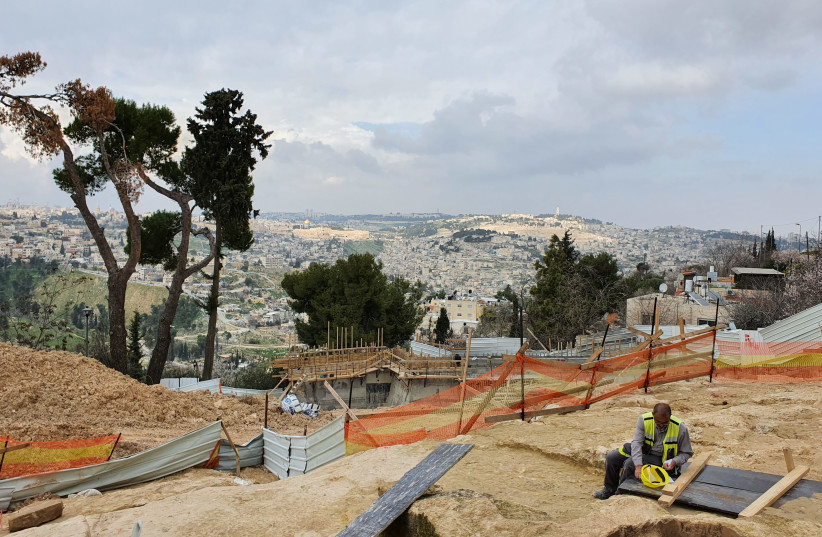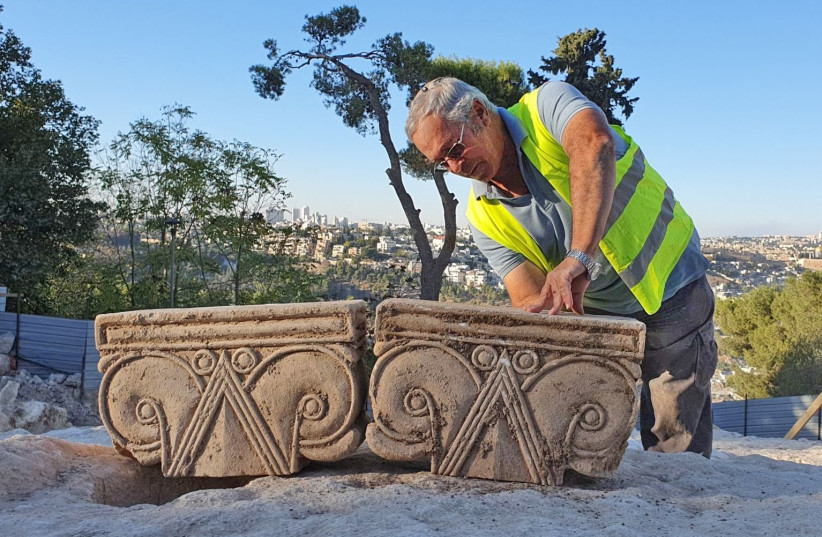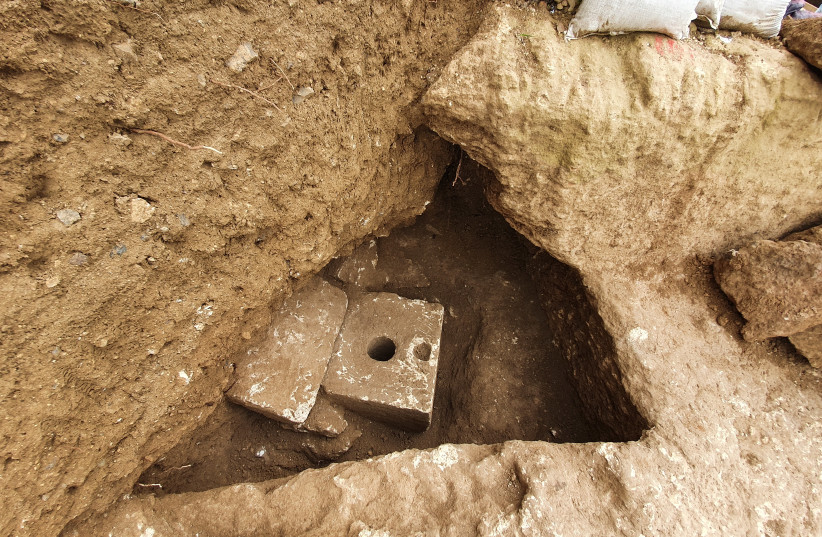A privatetoilet dating back
to some 2,700-years was uncovered in a luxurious palace in the Armon Hanatziv neighborhood of Jerusalem, the Israel Antiquities Authority announced Tuesday.
“A private toilet cubicle was very rare in antiquity, and only a few were found to date, most of them in the City of David,” said archaeologist Yaakov Billig, director of the excavation on behalf of the IAA. “In fact, only the rich could afford toilets. A thousand years later, the Mishnah and the Talmud raised various criteria that defined a rich person, and Rabbi Yossi suggested that to be rich is ‘to have the toilet next to his table’.”
The cubicle was hewn in the stone. The toilet seat, with a hole in the center, was designed to be very comfortable. Under a toilet, a tank stood, where remains of pottery, animal bones and human waste were collected. Experts hope that they will offer insights on dietary habits during theFirst Temple Period.
During the excavations – conducted by the IAA and the City of David – the archaeologists encountered several remains offering an idea of the high status of the building, including remains of decorated stone capitals and small columns.

The excavation of the royal estate discovered in Jerusalem. In the background is the City of David and the Temple Mount. (credit: YOLI SCHWARTZ/IAA)
A lush garden was planted around the toilet.
According to Billig, the palace – which offered a spectacular view over the Temple Mount – might have been inhabited by a king of Judah himself.

The Director of the excavation, Yaakov Billig, with the capitals. (credit: YOLI SCHWARTZ/IAA)
“It is fascinating to see how something that is obvious to us today, such as toilets, was a luxury item during the reign of the kings of Judah,” said IAA Director Eli Eskosido. “Jerusalem never ceases to amaze.
“I am convinced that the glorious past of the city will continue to be revealed to us in the future and will allow us to experience and learn about our past,” he added.
The details of the discovery will be illustrated during the conference “Innovations in the Archaeology of Jerusalem and its Surroundings” which will take place on Wednesday and Thursday in Jerusalem and online.



